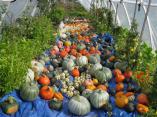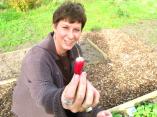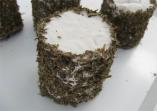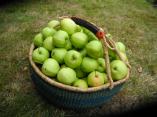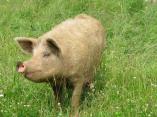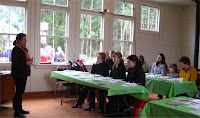Busy times. Let’s try to catch up.
A week ago last Sunday, a talk by Jon Steinman,
out at Muse Winery, was an attempt to draw together the gist of several years’ worth of radio (Deconstructing Dinner). He illustrated some of his concerns by deconstructing one of the agricultural multinationals who control the full spectrum of our food supply in Canada: Cargill. (The Deconstructing Dinner program upon which this is based: part 1 is here and part 2 is here.)
Cargill was established in 1865, in Minnesota. In Canada its headquarters are in Winnipeg. Here are the pies in which you’ll find its fingers:
Beef: Cargill owns 40% of the slaughter capacity in Canada (one of two companies that control 80% of capacity). It operates only two facilities: High River Alberta and Guelph, Ontario, which between them slaughter 5,400 cattle each day. Narrowing the field of operation in this way is undoubtedly cost-efficient for the company, but it shows very clearly the risks to consumers: any problem in one of those plants has grievous repercussions for consumers and meat producers alike, a point proven by the Maple Leaf experience, where we saw how large was the reach from a single production plant. And how great could be the financial repercussions for the company.
Animal feed: Cargill owns Nutrena, the largest feed company in the world, which makes pet food as well as feed for horses and pigs, chickens and cattle; and in 2000 they bought out their competitors, Agribrands Purina (not the pet food Purina, which is owned by Nestle).
Plant breeding: Cargill owns Renessen, partnered with Monsanto, producing such delights as genetically engineered corn. ‘Nuf said.
Fertilizers: Cargil is the largest phosphate producer in the world, operating with agricultural firm IMC Global as Mosaic, and is the second largest potassium producer.
Natural gas: Cargill is one of the world’s major traders and transporters of natural gas (an essential element in fertilizer production).
Salt: Cargill is the world’s largest salt producer and sells such products as water softener as well as manufacturing, agricultural and the Diamond Crystal retail salt brand.
Grain: Cargill commands 17% of the world’s grain trading.
Canola: Cargill operates the largest canola oilseed crushing plant in the world, in Clavet, Saskatchewan (selling under the trade name Canola Harvest).
Eggs: Cargill supplies most of the food service (Sunny Fresh) egg and breakfast products in Eastern Canada through its Kitchen Solutions brand.
Sugar: Cargill is partnering with Imperial Sugar Company to build the world’s largest sugar refinery, in Louisiana.
Malting: Cargill is a partner in Prairie Malt and is one of the two companies that control 75% of malting in Canada.
Chocolate: Cargill owns the production and processing of chocolate, and brands like Peter’s, Gerkens Cocoa, Veliche and Wilbur.
That’s some of what they own. They have many other interests including cotton, grain (through AgHorizons), High-Fructose Corn Syrup and other corn derivatives, frozen desserts, and ethanol.
And that’s only one company. Which is one extremely large reason why it feels safer to buy from small producers whenever possible.

